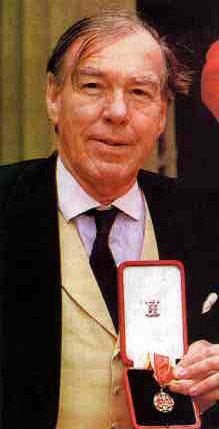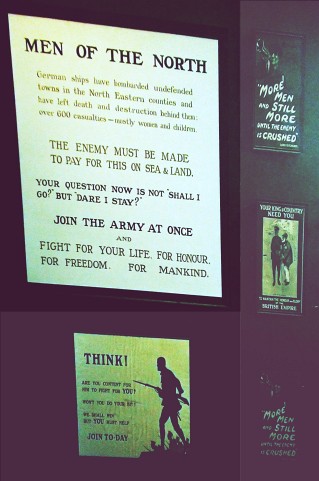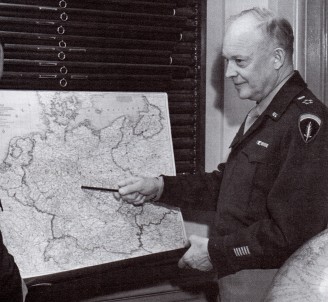Most Reviews More reviews, by subject:- Film, TV, DVDs, CDs, media critics | Health, Medical | Jews (Frauds, Freemasons, Religions, Rules, Wars) | Race | Revisionism | Women | Bertrand Russell | Richard Dawkins | Martin Gardner | H G Wells

John Keegan: Historian?
Some notes made from Internet sources, books I own, and other material.
John Desmond Patrick Keegan (1934-2012) dedicated his The Second World War (published 1989 by Century-Hutchinson in most of the English-speaking parts of the late British Empire; I don't know the US/Canada publishers)
the Royal Military Academy Sandhurst
1960-1986
Keegan lectured (and listened) at Sandhurst, which has, he said, a perfect library 'one of the most important collections of Second World War literature in the world'. That's in his Acknowledgements to The Second World War. However, and perhaps obviously, records of expenditure, money support for Jews under Stalin by Jews in the USA, and such things as factories and materials and GULags supplied by Jews money, and starvation and killings, are presumably not in the library—some are known to be stored elsewhere, many probably no longer exist.
In 1976 his The Face of Battle appeared. I believe there's an online pdf. There are some amusing Amazon reviews. It deals with justifications for military history, or personal accounts, or perhaps historiography, or maybe valiant bellicosity, at Agincourt, Waterloo, and the Somme—ridiculously small beer for the late 20th century. It 'catapulted him to fame... adopted as the US Book of the Month Club choice'. I'd guess the basis was laid for Richard Cohen ('my editor') and the phalanx of Jewish agents and facilitators to work over his prose.
Keegan moved in 1985 to Kilmington Manor, with his wife Susanne Everett, who wrote on Mahler, Gropius, and Kokoschka, suggesting the possibility of Jewish interests. I couldn't help wondering if Keegan was really Kagan or something of the sort. He said they had four children, though only two show on Wikipedia; maybe they're trying to be independent.
Keegan was a friend of Max Hastings (and of Cornwell=John le Carre, Conrad Black et al.). Hastings sounds almost exactly like Keegan, Oxford University and all, but about ten years younger, an author or compiler of subservient-to-US war books, with journalistic experiences. Keegan, at Hastings' invitation, 'quit his job lecturing at Sandhurst and joined the Daily Telegraph'. The Telegraph is a solidly ZOG publication aimed at conventional, rather stupid, and fairly wealthy males. It must have been felt unsatisfactory, as the so-called Independent was established as a low-circulation propaganda vehicle for Neocon Jews.
His three most promoted fast-sellers are:
1989 The Second World War
1993 A History of Warfare supposedly 40,000 years of Homo sapiens Sapiens, including Steppe Turks (Khazars?). And Clausewitz (1780-1830, said Keegan) On War, which is taught in armed forces Staff Colleges—"pretty well still gospel in service schools in the English and German speaking worlds". I wonder if this is still true, thirty years later.
1998 The First World War Reviews in Jewish media describe it as 'definitive'. There seems to be a free pdf download.
He was knighted in 2000, in a rather absurd ceremony by the head of the rather absurd British monarchy making him Sir John Keegan.

WW1 Propaganda: true or false? [York Museum]

'Ike the Kike'
Keegan said he's not keen on war. In fact he's 95% pacifist. But sometimes you get evil people; that's the other 5%. He regarded Hitler as the most evil; all his judgements are copied from other people. However he did give figures for the vast numbers of non-Jew deaths in WW2. He seemed to have little idea of the difficulties of compiling these figures, as is no doubt typical of people doing little original work. As an example, he commented on deaths after the Great War from influenza, or, more accurately, attributed to influenza. He had little idea of the fantastic degree of lying which wars, and media control, make possible.
He said (some of these details may be subtly wrong) that his father was a professional adviser on war—military experts both on organisation and technology have been very influential. [Just as, presumably, railways were institutionalised in India only 20 or 30 years after they were invented, and airplanes spread around the world - RW.] Keegan gave no examples of such military influence. Keegan believes there are 'natural warriors' whom you recognise when you see them. And also that military colleges cause a transformation—a French world—into committed soldiers who can't compromise, because it's compromise that will get you into trouble; unlike diplomacy and politics, loyalty and duty are necessary. Keegan doesn't quite mention obeying orders and being unable to function without being told what to do.
In Keegan's youth he contracted a tubercular bone disease (he seemed vague about it) which ruled him out of participation in war. As a result, he spent many years flat on his back, and, he said, reading. Something analogous, but far more minor, disabled H G Wells for a time; he was supplied with books and, as the expression goes, 'devoured' them. As far as I could tell, Keegan was not as intelligent as Wells:- Keegan said he's devoted to Kipling, the supreme genius, and read John Buchan, Hemingway, Melville, Whitman, Steinbeck, and Joseph Mitchell (who?) and Jane Austen, when he was not in England.
He mentioned a very few military books:- John Guilmartin's Gunpowder and Galleys which turns out to be on 16th century Mediterranean battles. And Barbara Tuchman. I wonder if he ever read Creasy's 15 Decisive Battles.
My best guess is that his theoretical man-of-action thrillers, and the sight of US jeeps when he was 11, formed the basis of his ideas of duty, honour, self-abnegation, and willingness to lay down one's own life as an obligation, and 'transformation'.
Keegan was rather volatile in his views of the world; he has been optimistic, but now, just a few years later, he told the interviewer, he has forebodings.
He helpfully listed three: North Korea, which has "to be prevented from becoming a nuclear power"—yes! he noticed in 1994 "they seemed to have forgotten about nuclear weapons", but had no clue they were just another Jewish fraud. The USSR still existed at the time; Keegan clearly had no idea of its Jewish nature, or perhaps hid that knowledge. He worried about the huge west-east interface in Russia between Christians and Islam. And he worried at the maelstrom of black Africa, full of arms salesmen.
By revisionist standards, Keegan was astonishingly naive. His WW2 history starts with France and Blitzkrieg, which appears to be, not German, but a manufactured word to cover the absurdly rapid invasion of France. I can't imagine he could have understood the concepts, surfacing slowly, of Hitler controlled and taught by world-wide Jewry.
Of course, world Jewry was keen to keep the realities of Vietnam under wraps, with full spectrum control from Sylvester Stallone and Robert de Niro to establishment politicians, historians, and secret finance. Keegan was a part of all this; his gentlemanly-wounded manner and ponderous style making him suitable. He put emphasis on Giap, completely unaware of Jewish money behind all the sides. And he supported everything 'the Americans' did. It "showed Americans were serious in opposing Communism"—though he vaguely prattled on Marxism. And on 'the Chinese Classics'.
Keegan was a friend of John le Carre, who told him one of his books contained nothing about intelligence. He might have added it contained little on propaganda. To get the impact of pre-radio propaganda, look at the 14 volumes or more of The History of the Great War, published by the Waverley Book Co Ltd. or on the ten volumes on the Second World War, The War Illustrated published by Amalgamated Press.
At David Irving's libel trial day 16 he was made to testify, contributing nothing much except his Jew-promoted fame.
Keegan said his 2nd World War hardback sold 80-90 thousand copies. He said nothing about hisTelegraph salary, but one must suspect he was funded to move to a house in which to write. MY IMPRESSION is that he had no clue. Russia 'joining the responsible powers' amused me. He had no idea about funding weapons and national debt. He admired Eisenhower enormously as a human being, a farm boy with religious upbringing, becoming at West Point an extraordinary agent of power, a deeply good man. More or less verbatim.
KEEGAN's 1998 The First World War was 'Number 6 on the New York Times list' said someone introducing a talk by Keegan at a public library in Cambridge, USA.
Most of the talk was sentimental material: Armistice 11 o'clock on 11th November 1918; 1998 an anniversary; Remembrance Day shifted to the nearest Sunday; Lutyens, Cenotaph, Whitehall—a sort of convocation with the Queen, officials, ambassadors, veterans. And two minutes silence. Keegan listed casualties—British casualties were not as appalling as the French, in proportion; Germany lost 2M out of 15M men of fighting age. Italy lost 600,000 out of about 10M males of fighting age. Keegan says 700,000 dead in the British Isles is about right—influenza deaths would have happened in any case, he thought. WW1 memorials in Britain are about the same as in the US Civil War.
Keegan has curiously simple views of nations, duty, deaths, deaths of relatives, victory, and defeat. Nothing on money, profits, different internal divisions, oddities like the Irish reviving the Dublin Fusiliers etc.
I have a copy of Some Desperate Glory, a title given to a 1917 diary by Edwin Campion Vaughan, a young officer, with Keegan's plaudit: 'A classic among memoirs of the Great War'. Officers of course were less likely to be killed than the called-up squaddy types, though I'd be surprised if any official figures have ever been calculated.
There were some sceptical comments by Keegan, naturally not encouraged by ZOG regimes, who want deaths of non-Jews. Keegan was sure the war was not inevitable, and this is something Jews are keen to oppose. (I realised this when I posted a comment in Facebook on a site called World War One, and that comment was removed, leaving only sentimental slush). Keegan made comments on a quick war; British neutrality and a quick German victory would have kept out Bolsheviks and Fascists—things of course Jews wanted; Keegan was impressed by horrors of partisan warfare (1.5M Yugoslavs killed by other Yugoslavs), and looked forward to single ethnicity states—again, what Jews don't want. Keegan talked on Gallipoli; he had no idea Kemal Ataturk was not a Turk, but a crypto-Jew. Keegan compared the Great War with the Trojan War. Keegan said there was something special about 1914, since from about 1900 all world crises were resolved, he said. Keegan didn't notice the changed US Constitution to allow income tax, the introduction of the Federal Reserve, the establishment of the ADL, the direction of bullion to Jews, and similar events in Jewish areas. He didn't notice the buying-up of all important newspapers.
© Rae West 17 Jan 2020